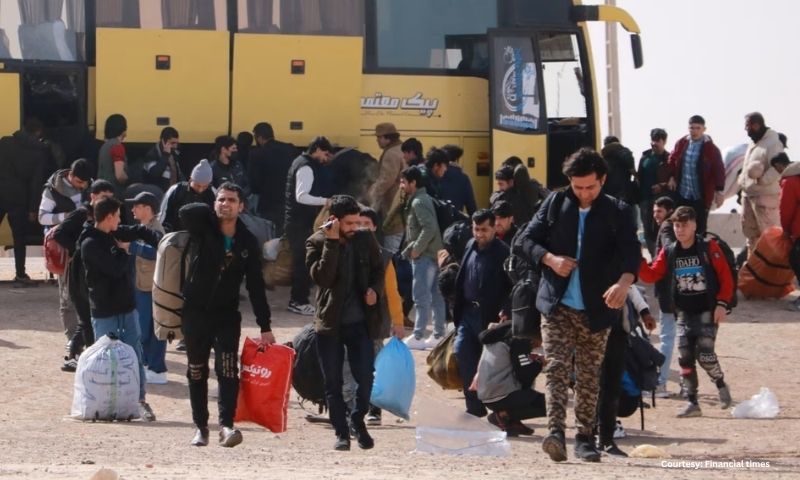ISLAM QALA – A humanitarian emergency has been declared at Afghanistan’s western border as tens of thousands of undocumented Afghan migrants continue to return from Iran each day, following Tehran’s decision to enforce a nationwide deportation deadline.
According to estimates from international aid agencies, more than 250,000 Afghan nationals were repatriated from Iran in June alone, with daily arrival rates spiking to over 43,000 by early July. The majority of returnees include women, children, and elderly individuals, many of whom arrived in extreme heat, exhausted and carrying few possessions.
The Iranian government’s move is part of a broader plan that could potentially force up to four million Afghans to leave the country. Human rights observers have raised concerns about the scale and speed of the operation, warning that it could trigger a regional humanitarian crisis if not managed with adequate support.
At the main crossing point in Islam Qala, emergency aid services are overwhelmed. Reception centers originally built to handle around 10,000 people daily are now operating far beyond capacity. In response, UN agencies and NGOs have deployed emergency assistance, including water supplies, sanitation facilities, food, vaccinations, and temporary shelters. However, the strain on resources is growing, prompting urgent calls for increased international funding.
Afghanistan, already grappling with economic instability, drought, and widespread poverty, now faces an added burden of reintegrating large numbers of returnees. Humanitarian workers warn that without significant international assistance, the country’s fragile aid infrastructure may collapse under pressure.
Aid agencies are urging the global community to take immediate action to support Afghanistan’s humanitarian response and prevent a worsening of conditions for both returnees and host communities.
This story has been reported by PakTribune. All rights reserved.


